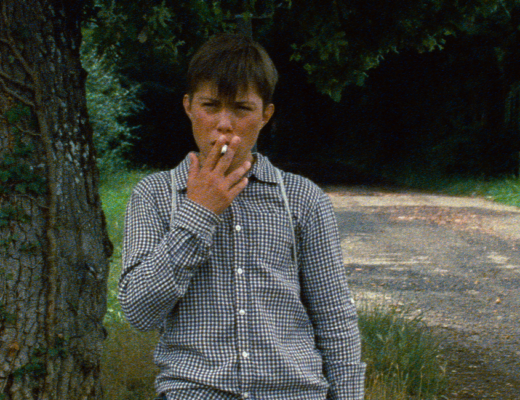With The Dark & the Wicked, Bryan Bertino opts for cheap ominousness at the expense of developing the film’s implied psychological subtext.
It’s unfortunate that Bryan Bertino’s debut feature was 2008’s The Strangers. The film is the 21st century’s best instance of studio horror, a legitimately terrifying vision that both afforded the director instant credibility and established impossible expectations. The Strangers’ formalism marked a filmmaker in complete control of both his craft and the emotional pulse of an audience, who he successfully manipulated with the glee of a sadist. His follow-up, 2014’s Mockingbird, was so bad that Universal dumped it straight to DVD, while 2016’s thoroughly average The Monster couldn’t even excite king shit indie studio A24. Glimpses of the Bertino that once was can be seen in his latest flick, The Dark and the Wicked; shot composition is on point, aptly utilizing the empty space in his widescreen vistas to thoroughly keep audiences on edge. It’s too bad, then, that his script is such a half-baked mess. In the age of horror films like The Babadook and Relic, if you aren’t going for broke with your allegorical scare tale, you’re doing it wrong.
Here, there are seeds of something great: Marin Ireland and Michael Abbott Jr. star as a brother and sister returning home, apparently for the first time in ages. A dying father (Michael Zagst) gives cause for their sudden reappearance, although, of course, something evil lurks in the shadows. There are the obvious signs: Mother (Julie Oliver-Touchstone) whispers about demons; objects move on their own; the skittish goats in the barn bleat with discomfiting abandon. Put more simply, there’s an overwhelming dread that seems to infect the siblings upon their arrival, at which point the film’s metaphor practically writes itself: the pair are afflicted by Satanic visions, otherwise known as the guilt-induced manifestations of adult children who turned their backs on the very people who gave them life in order to pursue their own. Unfortunately, Bertino is uninterested in plumbing the psychological depths of his protagonists or their situation — not surprising considering the blessed simplicity at the heart of his previous films — instead favoring countless shots that play like a “Best Of” reel from The Strangers: here, a wide shot of a female character getting herself a glass of water from the kitchen sink while something evil lurks in the background; there, a close-up of a record player spinning an eerie tune; everywhere, evil antagonists lovingly framed by open doors and windows. Once in a while something cuts through the monotony, such as the menacing image of a three-legged goat running across a field, nursing a bloody stump, but even the very presence of goats seems passé after Black Phillip’s deliciously sinister use in The Witch. The underwhelming ending makes clear that Bertino had no intention of committing to the film’s obvious metaphor, an especially galling development given its potential and the seeming attention paid to it throughout. Ireland, for one, certainly deserves better — she manages to imbue her wholly underwritten character with a genuine, rending pathos. Given her remarkable and undeserved work here, coupled with her affecting turn in last year’s more groundedly eerie and criminally underseen Light from Light, it’s easy to get excited for what she’ll do next. It’s a shame that, at this point, the same does not apply to Bertino.
Originally published as part of Fantasia Fest 2020 — Dispatch 5.







